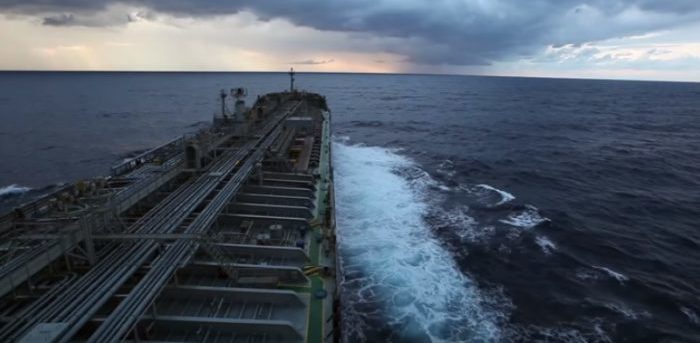Amid an escalating tension in the Persian Gulf over the last months, oil tanker owners seem to have found a new way to tackle the increased danger for ships transiting the Strait of Hormuz, the world’s most important shipping route for oil supply.
At least 20 ships have turned off their transponders while sailing in the area in July, according to data provided by Bloomberg, while others appear to have slightly altered their routes once inside the Persian Gulf, sailing closer than usual to Saudi Arabia en route to ports in Kuwait or Iraq.
Before the latest increase in tensions with Iran, shipping routes took their routes close to the Iranian coast, skirting the offshore South Pars/North gas field shared by Iran and Qatar.
This still occurs for many ships, but a growing number appear to be trying turning off their transponders to minimize risk.
These efforts come in light of a surge in attacks against ships in the region, which have brought a global disruption with diplomatic tensions, tanker seizures, drone shoot-downs, all against the backdrop of US sanctions at Iran.
The War Insurance market has reacted with increased rates for War Insurance cover for transits and port calls in these waters. From 29 July 2019, the rate for any call to the Persian Gulf area (Persian or Arabian Gulf and adjacent waters including the Gulf of Oman west of Longitude 58° E) has been increased from 0,25% to 0,5%, the Swedish Club informed.
See also:






























































